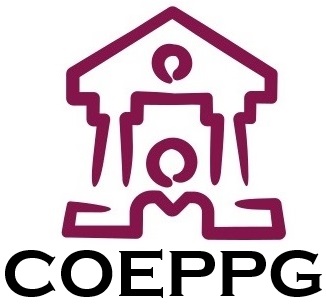
Experiential Learning (EL) intends to bridge the gap between IIM Kashipur and the social sector to engage institutional stakeholders in issues pertaining to societal development and sustainability. Comprising of the key stakeholders (Faculties and Students), the key emphasis of EL is twofold: (1) To address developmental agenda within the region by partnering with relevant external organizations under an innovative outreach programme, (2) To create a mutual benefit for students and associated external organizations who are working on developmental issues pertaining sustainable development, rural development, and development of young firms. Via EL, while organizations can derive helping hands on their intellectual, research, and field requirements, students, on the other hand, source-in the invaluable ‘Experiential Learning’. While this transforms Business Management education by bridging the gap between academic knowledge and industrial practicality, EL innovates to enhance the involvement of IIM Kashipur in the developmental issues primarily pertaining to the region of Uttarakhand.
Experiential Learning’s Outcomes on Social Engagement and Societal Impact is channelled via its three verticals
Sustainable Development is a critical agenda faced by modern day businesses. It intends to balance the coexistence of people, planet, and profits. While at a broader scale, sustainable development has become a catchphrase for green business practices to reshape corporate strategies, at a micro view, sustainability unlocks several hard to address issues pertaining to environmental and societal management. The EL vertical of Environmental and Sustainable Business Practices (ESBP) aligns with this concern, and engages students with organizations addressing micro issues on sustainable development for example impact of climate change on crops, strategic planning and implementation of SDG frameworks, fostering carbon negative practices in firms, bio-diversity conservation, developing seed banks and distribution systems to conserve region-specific seeds, eco-friendly textile production, water/irrigation management, promoting self-help groups working on regional products and artworks, new education policy and its societal impact, and so on.
Rural Management is an important agenda to develop capabilities within the resourceful yet hard to tap rural landscape. A rural landscape may have access to rich resources and unique products, however streamlining supply capabilities can be difficult due to uncoordinated stakeholders, disjointed value chains, rural stigma, and lack of awareness. The EL vertical of Unlocking Rural Potential (URP) addresses this concern and engages students with organizations addressing rural management issues such as uplifting rural livelihood by developing employment opportunities, promoting smokeless stove in rural regions to improve women health, Gram Swaraj, Eco- and agro-tourism, strategic planning for Jal Jeevan mission, diagnosing farmer issues for organic products to improve farmer income, Van Panchayat and forest management, developing homestays in the hills of Uttarakhand, and so on.
MSME stands for Micro, Small, and Medium Enterprises. In accordance with the Micro, Small, and Medium Enterprises Development (MSMED) Act of 2006 in India, the enterprises are classified into three divisions: Micro enterprise (Turnover less than or equal to INR 2.5 Million), Small enterprise (INR 2.5 Million to INR 50 Million), and Medium enterprise (INR 50 Million to INR 100 Million). Irrespective of the governmental classification, MSMEs are young firms with tremendous growth potential and risk. In this framing, the EL vertical of MSME Development engages students with young firms such as cooperatives, new businesses, start-ups, and small-scale production units. Exemplar issues covered include branding of organic products of women-oriented cooperatives in the mountains, brand development for young firms, funding and growth levers for rural cooperatives in the region, value chain integration for young firms, B2B marketing strategies for young firms, marketing, sales, and social media promotion for young firms, market development and raising consumer awareness, and so on.
For more details visit the page of Experiential Learning




